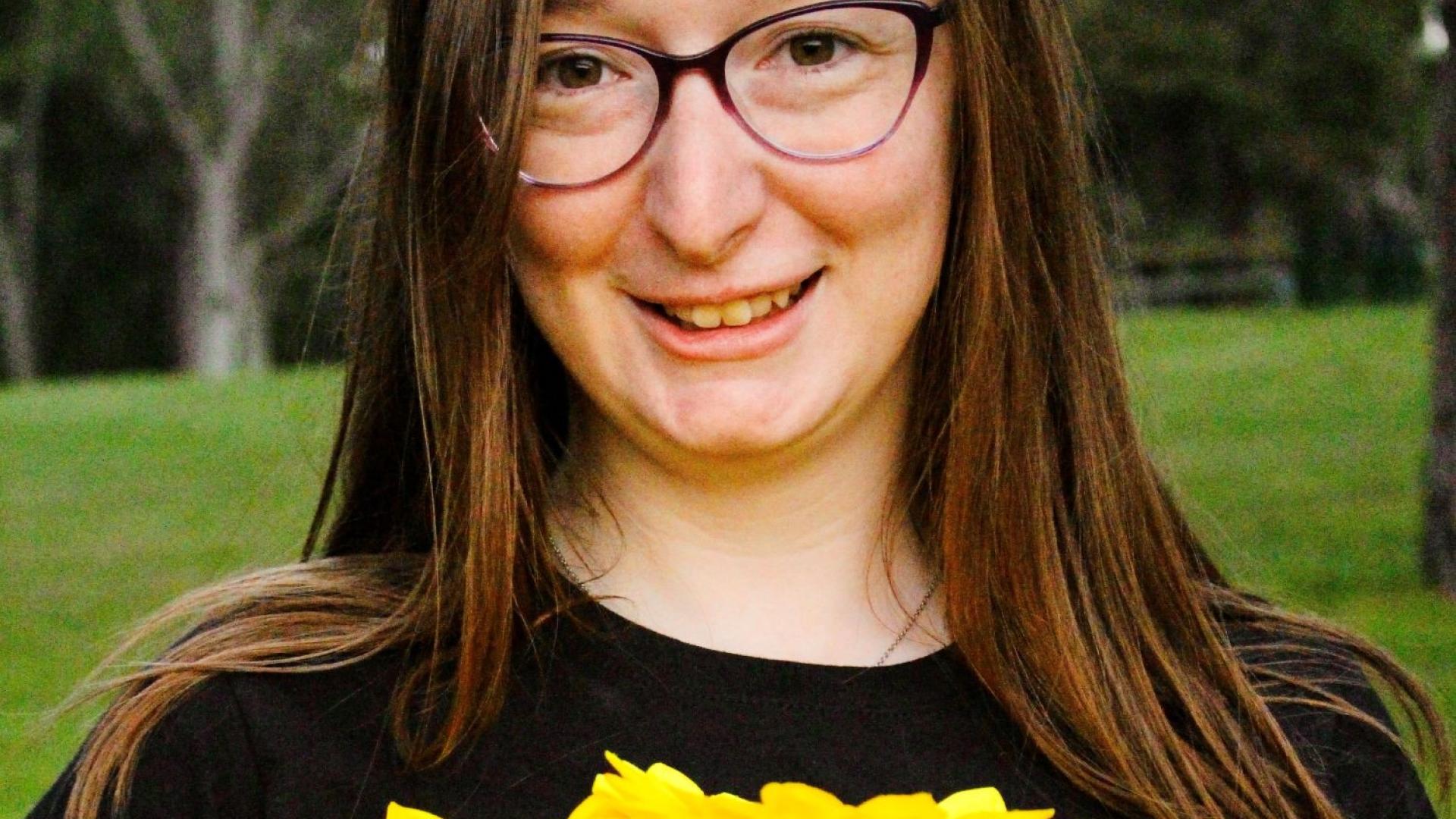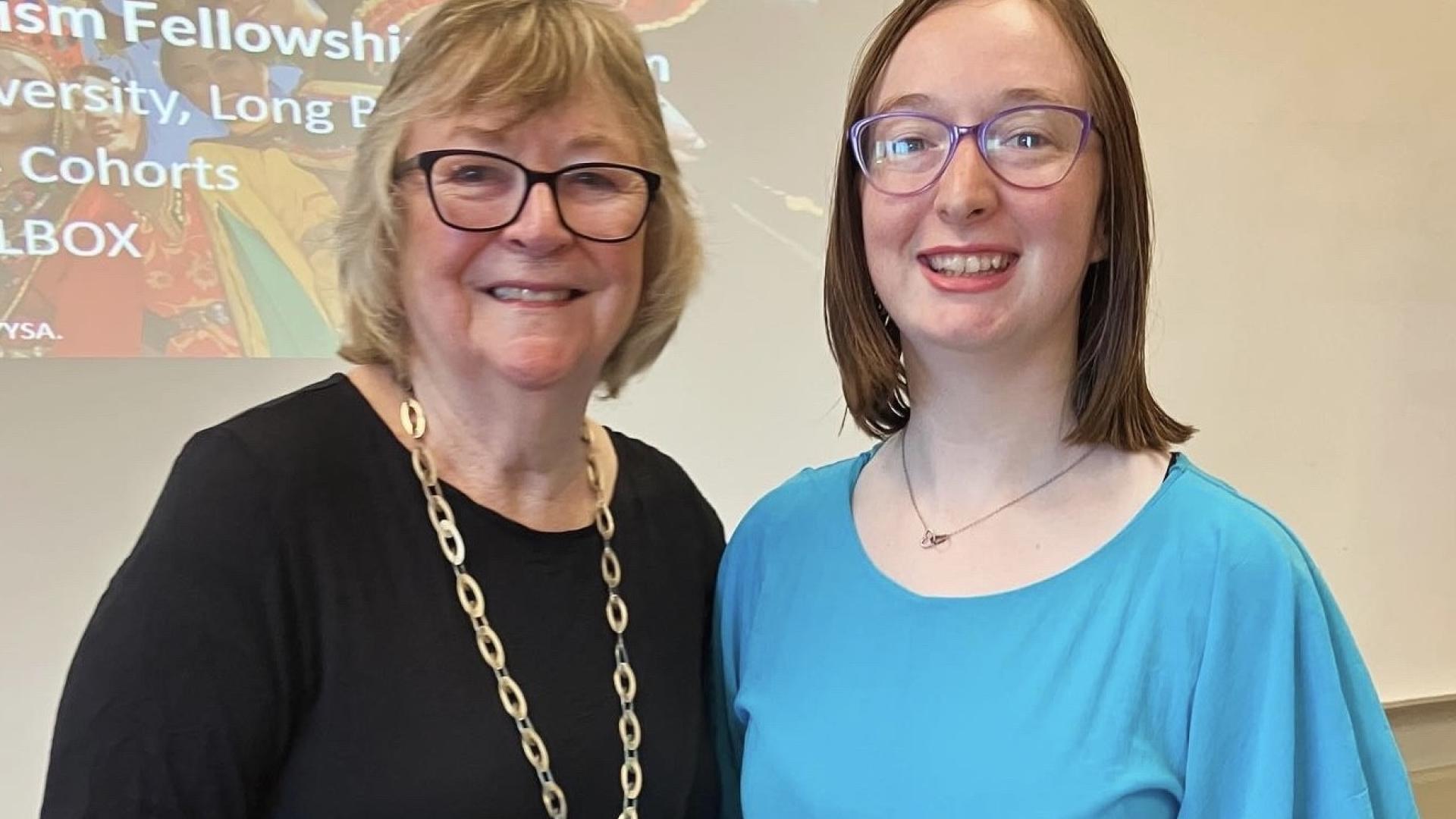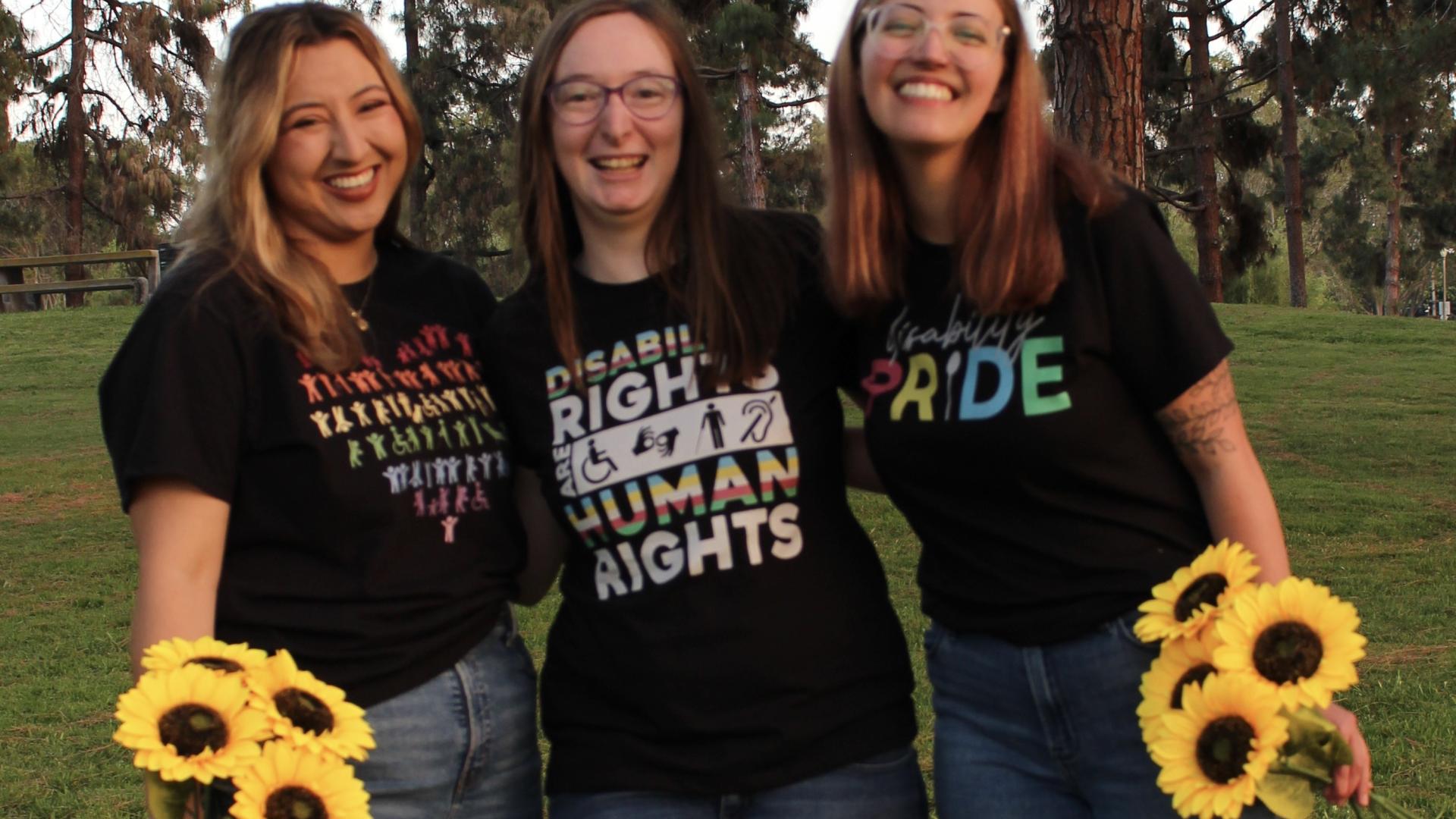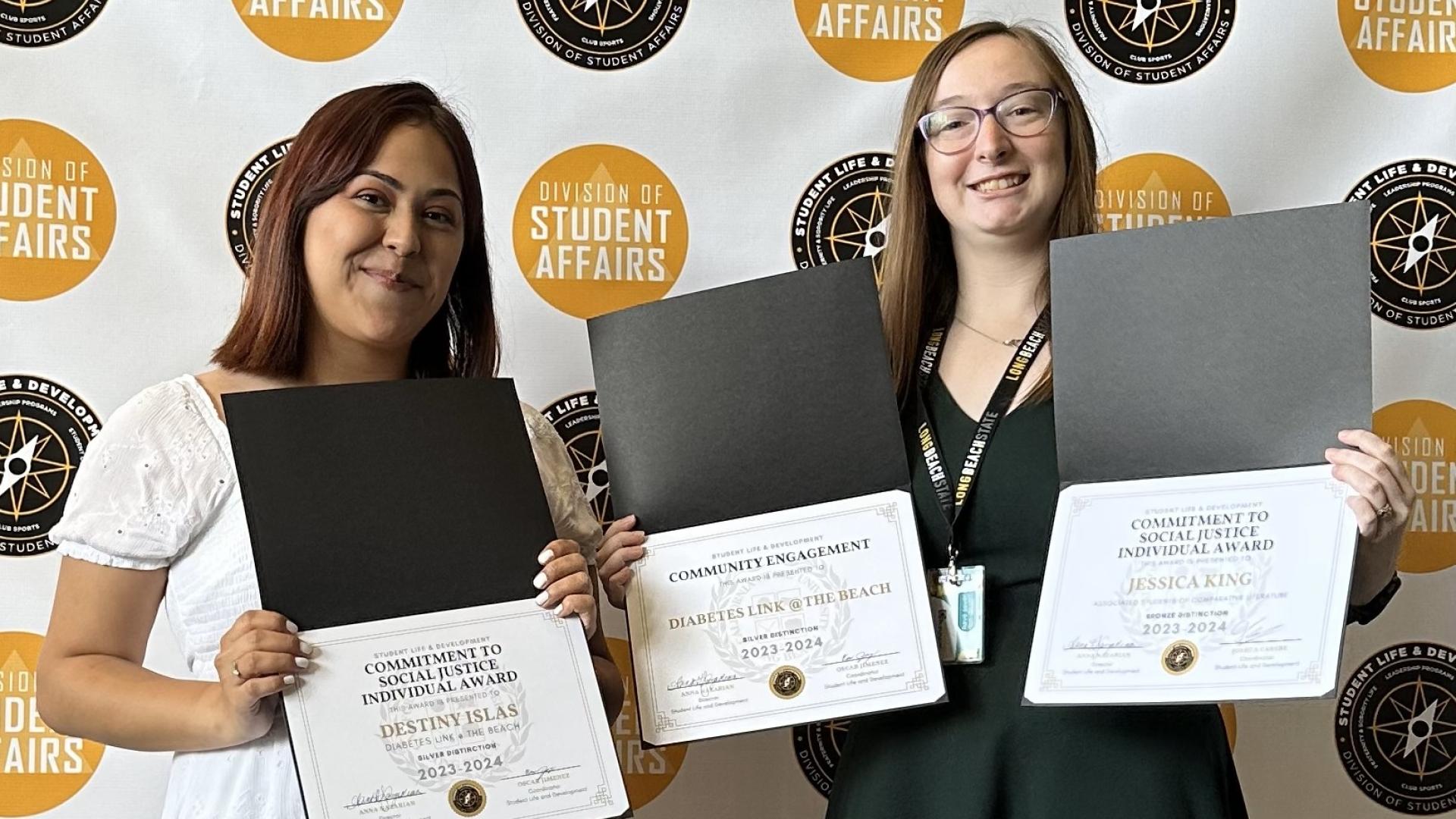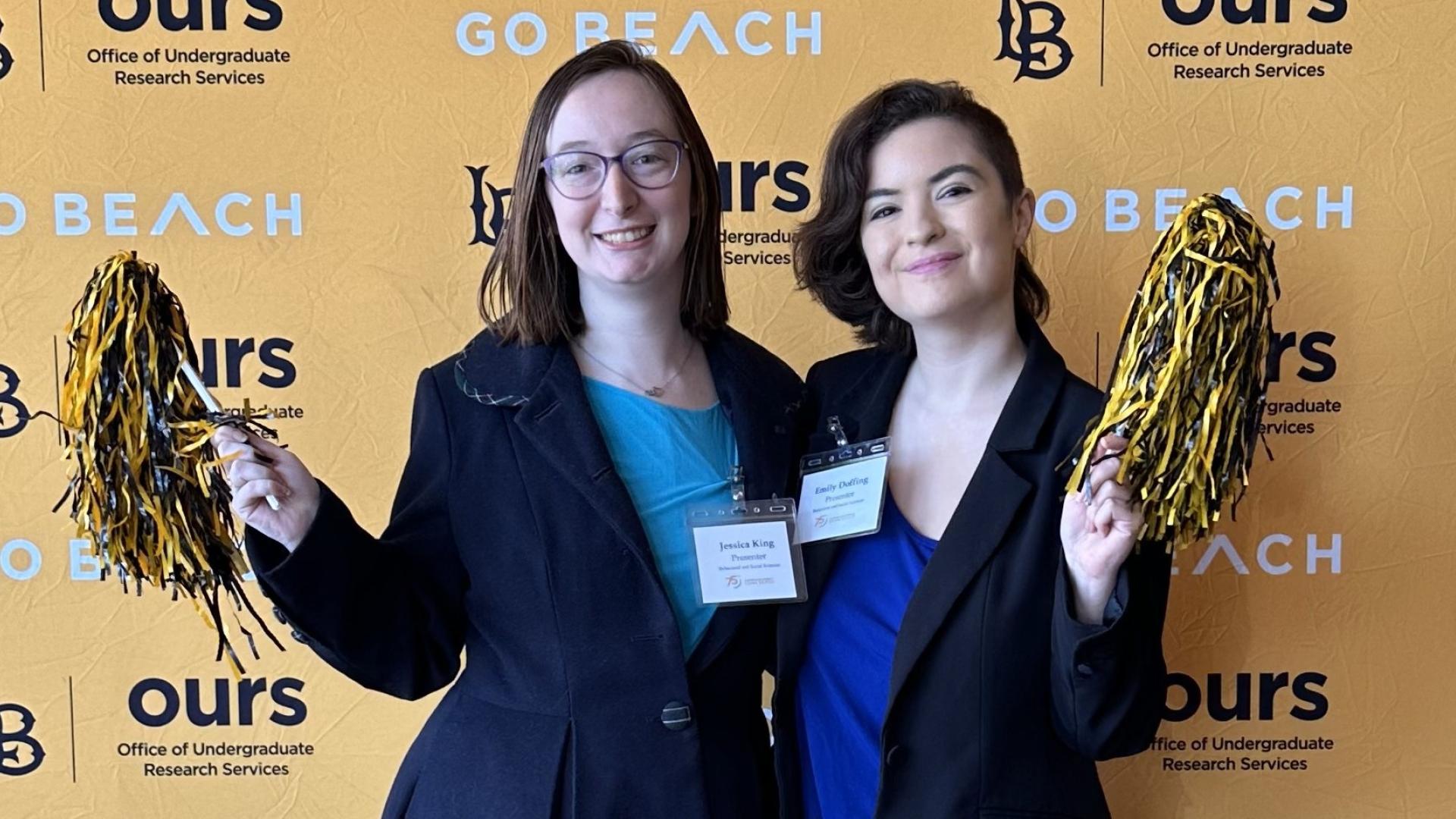Jessica King '25
I transferred to CSULB because I came to this campus as one of my community college’s field trips, and I immediately fell in love with the brick architecture and green space; our tour guide being a double-major in creative writing and literature sealed the deal for me as someone who wanted to pursue careers in creative writing, publishing, and college teaching. Even though my academic and professional aspirations shifted since then, I have no regrets transferring here
The achievements and challenges I’ve faced during my time at CSULB have shaped who I’ve become as a person, student, and community leader. Being a low-income first-generation student transferring to a university and moving into a housing assistance program, entering this next stage in my academic career was a difficult transition. Almost simultaneously, I received my autism diagnosis and didn’t have the right support system to approach this new topic; as a result of all these drastic changes, my mental health fell apart and I almost dropped out. Fortunately, with the unconditional support of my success teams, including BMAC/LIFE Project, the professors who’ve become my mentors, and my online friends-family, I’m now proud to identify as an AuDHD woman and build my career as a disability activist. In the past year, I’ve presented at over a dozen conferences and symposiums, self-published a digital anthology, participated in two fellowship programs, joined two psychology research labs, and won the “Commitment to Social Justice” award!
Graduate school is hopefully the next journey! I’m currently applying for the MA in Disability Studies and MS in Disability Services in Higher Education at the City University of New York (CUNY). Since they are fully online programs, I can focus on improving my health as someone who’s neurodivergent and chronically ill while building my disability empowerment nonprofit, White Dove Disability Advocacy. Alongside leading the organization, I strive to become a disability studies professor to foster future activist leaders as well as a disability specialist to help disabled students advocate for their access to an equitable education.
The disabled community, to this day, is structurally set up for failure: we are haunted by systemic ableism inaccessibility to education, healthcare, employment, and community. Whether our disabilities are apparent or nonapparent, congenital or acquired, “acceptable” or “unacceptable,” we experience societal barriers that prevent us from being independent, ambitious, successful degree-holders. As a CSULB alumna with multiple disabilities, I want to prove how capable BMAC students and disabled people can be when we deconstruct these barriers. I want to return to CSULB and find our campus flourishing with disability culture, equity, and accessibility.





